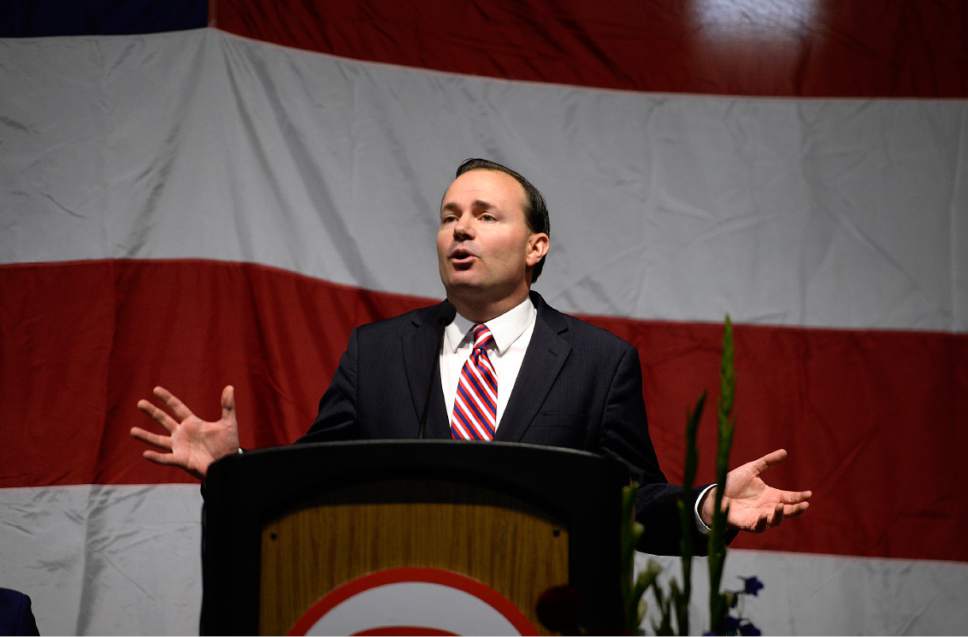This is an archived article that was published on sltrib.com in 2017, and information in the article may be outdated. It is provided only for personal research purposes and may not be reprinted.
State and local law enforcement agencies seize billions of dollars in cash and personal property each year from individuals suspected but not charged with or convicted of any crime.
The Trump administration moved Wednesday to strengthen that practice, known as civil asset forfeiture, reviving and expanding the federal reach — and renewing criticisms over its use.
Among the outspoken opponents? Utah Sen. Mike Lee.
The Republican lawmaker, who has advocated reform of the policy since taking office in 2010, called out the Department of Justice for bolstering what he says is a "constitutionally suspect" practice.
"Instead of revising forfeiture practices in a manner to better protect Americans' due process rights, the DOJ seems determined to lose in court before it changes its policies for the better," he said in a statement.
Civil rights groups and lawmakers on both sides of the aisle share Lee's concerns.
U.S. Attorney General Jeff Sessions, though, a former Senate colleague of Lee, says restoring the federal policy — which was restricted under the Obama administration in 2015 — reduces violent crime, particularly drug offenses, by "bankrupting organized criminals" and taking back "ill-gotten gains."
Under the amended law, cash and belongings not returned to individuals can be retained by the government and shared among federal, state and local authorities to purchase new police equipment, including bulletproof vests and patrol cars.
"In departments across this country, funds that were once used to take lives are now being used to save lives," Sessions said in announcing the policy Wednesday to law enforcement officials in Washington.
In accordance with state law, Utah police last year seized $1.4 million in cash, according to a Utah Commission on Criminal and Juvenile Justice report. In 94 percent of the 400 cases, the materials were not returned to the individual, though just two-thirds of the cases ended in a conviction.
Utah's Libertas Institute, a libertarian-leaning nonprofit that pushed for annual state reports on forfeiture, contests Session's new policy. Connor Boyack, institute president, believes the "only plausible outcome of this expansion is more innocent people have their property taken from them."
"Especially in the name of justice, it's absurd," Boyack said.
In addition to state seizures, federal agencies last year collected $1.2 million in assets in Utah.
To Boyack, those dollars represent rights violated by the government. And though the federal policy would allow law enforcement agencies to bypass state laws, Boyack plans to lobby for measures that would "put handcuffs on state and local law enforcement" from participating in and profiting from the expanded forfeitures.
In unveiling the augmented policy, Sessions did add some safeguards to more stringently establish probable cause, increase training and supervision for officers and require approval for seizures of $10,000 or less. He also proposed expediting court proceedings for forfeiture cases and urged "an abundance of caution."
Twitter: @CourtneyLTanner



